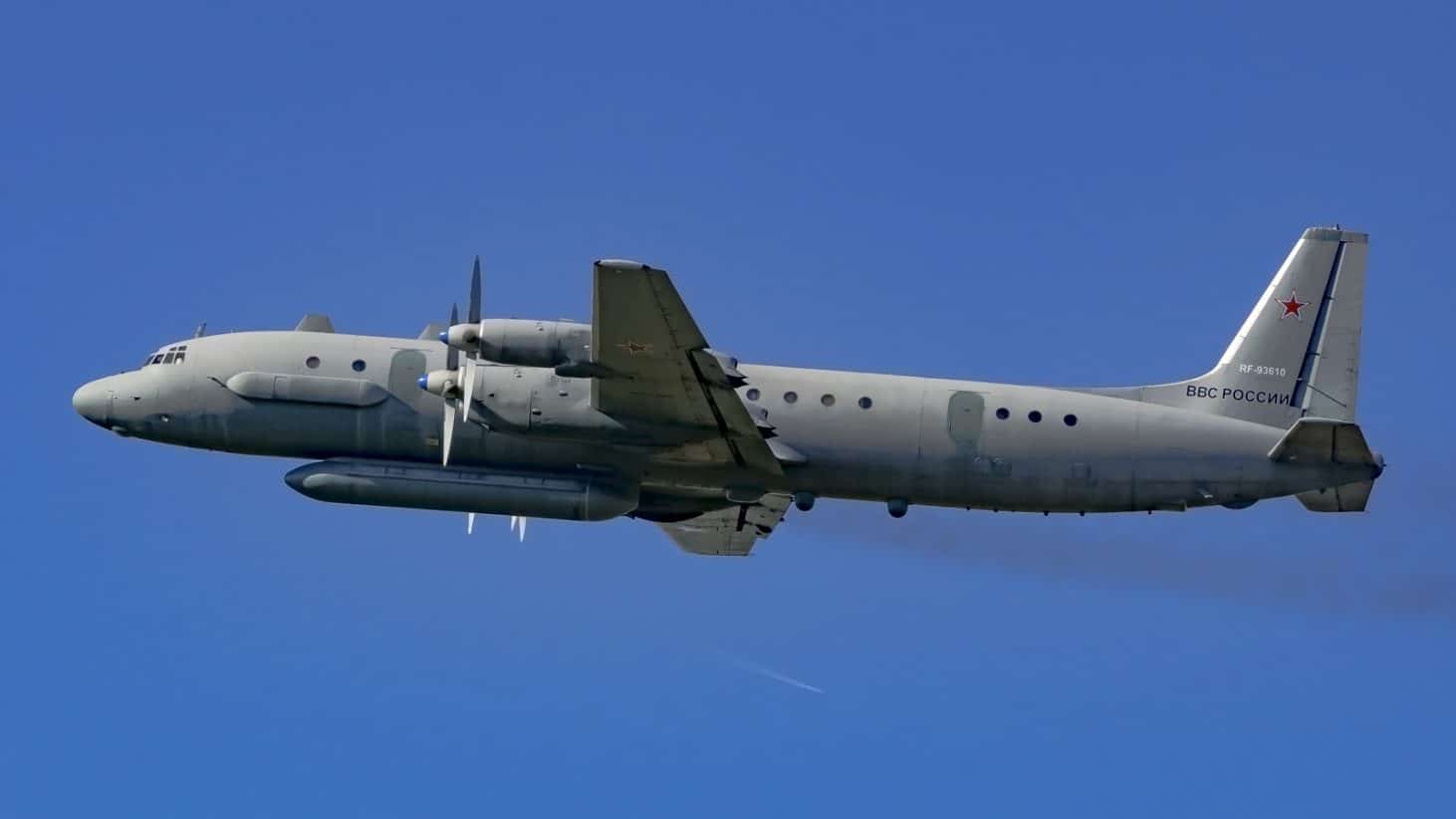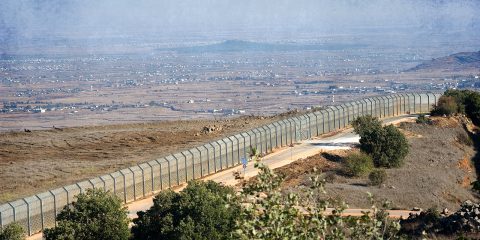Russia’s accusations against Israel that it is responsible for the downing of its plane is meant primarily for a domestic audience. Until now, Russia has made sure to behave with restraint in the Syrian arena and to operate based on its strategic interests. One of those interests is the Russian desire to minimize Iranian involvement in Syria.
The downing of the Russian patrol plane Ilyushin Il-20 last month in the airspace of Latakia in Syria, which led to the deaths of 15 Russians, was the result of anti-aircraft missiles fired by the Syrians at Israeli aircraft operating in the area. The incident led to harsh Russian accusations against Israel. The quick visit to Russia made by the Israeli Air Force commander, Maj. Gen. Amikam Norkin, who presented the findings of the IDF debriefing to His counterparts in Moscow, did not help. The Russian Ministry of Defense published findings of an internal investigation that concluded that Israel deliberately led to the situation in which the Russian plane was hit, and that Israel had been negligent and amateurish.
Russia was not satisfied with just reprimands, and even announced that it would provide the Syrian army with advanced S-300 air defense systems, whose transfer to Damascus has been thwarted by Israel over the last decade thanks to a successful diplomatic maneuver and wise conduct vis-a-vis the Kremlin. The Russian Defense Ministry added that it intends to upgrade the Russian command and control system in Syria to better coordinate with the Russian army, and has announced that it will begin to use electronic warfare to disrupt GPS navigation systems in the region.
However, despite the tone used and the official criticism, which was primarily for the consumption of a domestic audience, it is not expected that the relations between the two states will be damaged and therefore Israel’s aerial freedom of operation in Syria will be preserved.
Israel would prefer that Russia continue to avoid transferring the S-300 to Syria, but it can be reasonably assumed that the IDF learned very well how to deal with this system, because of the long time since Russia first threatened to supply the systems to Syria – which allowed Israel the time to prepare for it technologically – and also because various types of the system have been transferred to friendly countries to Israel, such as Greece and Cyprus, with which the IAF has conducted a number of aerial exercises in the past.
As for the use of Russian electronic warfare in the Syrian arena – Russia has long been operating low-intensity electronic warfare aimed primarily at US Air Force operations. Israel, which operates in the Syrian airspace, is considered a major player in the electronic field, and both countries have no interest in using large-scale electronic warfare against each other.
In addition, disruption of navigational systems in the Mediterranean may endanger not only IAF aircraft, but also the U.S Air Forces that operating in Syria in the name of the coalition against the “Islamic state”, and even civilian aircraft, and it is highly doubtful whether Russia will fulfill its threats on this issue, mainly because U.S forces could be hurt.
With the end of the civil war in Syria and the reduction in the need for Iranian fighters and Shiite militias to ensure the survival of the Assad regime, Russia will have an interest in weakening Iran and reducing its presence in Syria, particularly along the coast, which is the main stronghold of the Assad regime and a strategic region for Moscow. Russian President Vladimir Putin’s policy in Syria has in recent years been rather complicated: on the one hand, he is trying to maintain relations with Iran, which has great potential as a trading partner (particularly military and energy products) and is a target for anti-American political influence; on the other hand, the Russian President is interested in a stable Syria and in the implementation of rehabilitation projects and the development of economic and military opportunities in the country. Russia’s overall policy in the region is to maintain and expand its military foothold along the Syrian coast, and primarily at Latakia and Tartus, which provide the Russian navy with access to the Mediterranean.
To stabilize the Syrian arena according to Russian interests, the tension in Syria needs to be reduced and in particular that between Iran and Israel, in view of Moscow’s concerns that Israeli activities against Iranian involvement undermine Syria’s stability and are liable to disrupt the efforts to rehabilitate the state after the civil war.
Israel has a legitimate right of self-defense to operate in Syria. Even if Russia does not recognize this officially and even though it sometimes attacks Israel, it understands the rationale and its defensive interests in the region and prioritizes its needs over those of Iran. The result is the tight security cooperation between Moscow and Jerusalem and Russia’s turning a blind eye toward Israeli operations, while refraining from the use of Russian air defense systems during Israeli attacks.
In this geopolitical reality, the likelihood that Russia will change the status quo in the region and make Israeli operations in Syria more difficult is rather low. In the end, Russia has proven itself (throughout its long history) to be a country whose policies are even-keeled and level-headed and that they do not involve emotions, haste or irresponsibility.
If Israel is again forced to operate in Syria (as is expected) to prevent the continuing Iranian deployment and the smuggling of strategic weaponry from Iran and Syria to Hezbollah, it will not hesitate to do so, whatever the situation. Putin understands this equation and therefore he apparently will not alter the arrangements with Israel.
Israel may even come out ahead because of the most recent incident. Until now, the Iranians believed that Israel would not attack some regions in Syria, and particularly Latakia, where there is a concentrated Russian presence. In Teheran, it was felt that proximity to the Russian forces would prevent Israel from attacking Iranian assets, out of fear that Russian soldiers and assets would be harmed.
The recent attack in Latakia proved that Israel is determined to defend itself and that it is able to avoid harming Russia (at least as a result of its activities though not as a result of the Syrian response). Currently, both Iran and Russia understand that Israel’s determination should not be put to the test. Even if Iran does not reduce its efforts to become entrenched in Syria and continues to convey advanced weaponry to Hezbollah, Russia may now tighten restraints on Iran and may try to reduce its influence, based on the desire to achieve stability in the region and avoid possible damage to Russian assets in the future.
JISS Policy Papers are published through the generosity of the Greg Rosshandler Family.
photo: By Papas Dos from Moscow, Russia (RF-93610 IL18(20M) Russian Air Force UUMB) [CC BY 2.0], via Wikimedia Commons








 - בניית אתרים
- בניית אתרים